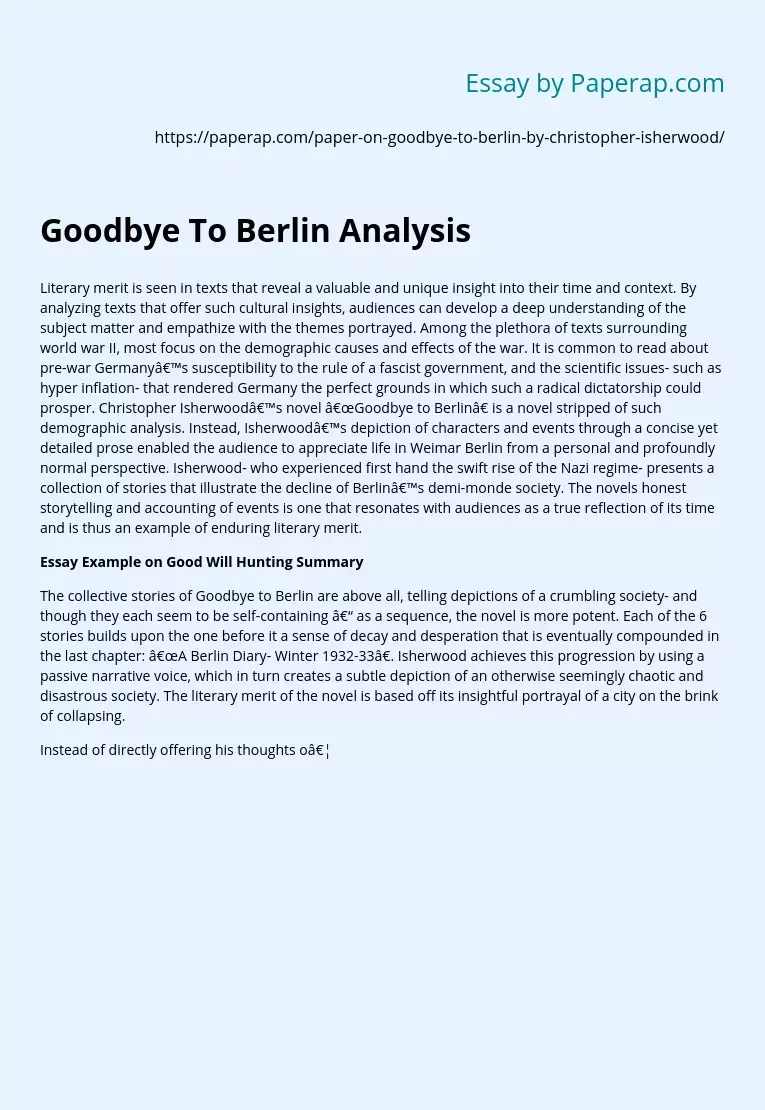Goodbye To Berlin Analysis
Literary merit is seen in texts that reveal a valuable and unique insight into their time and context. By analyzing texts that offer such cultural insights, audiences can develop a deep understanding of the subject matter and empathize with the themes portrayed. Among the plethora of texts surrounding world war II, most focus on the demographic causes and effects of the war. It is common to read about pre-war Germany’s susceptibility to the rule of a fascist government, and the scientific issues- such as hyper inflation- that rendered Germany the perfect grounds in which such a radical dictatorship could prosper.
Christopher Isherwood’s novel “Goodbye to Berlin” is a novel stripped of such demographic analysis. Instead, Isherwood’s depiction of characters and events through a concise yet detailed prose enabled the audience to appreciate life in Weimar Berlin from a personal and profoundly normal perspective. Isherwood- who experienced first hand the swift rise of the Nazi regime- presents a collection of stories that illustrate the decline of Berlin’s demi-monde society.
The novels honest storytelling and accounting of events is one that resonates with audiences as a true reflection of its time and is thus an example of enduring literary merit.
Essay Example on Good Will Hunting Summary
The collective stories of Goodbye to Berlin are above all, telling depictions of a crumbling society- and though they each seem to be self-containing – as a sequence, the novel is more potent. Each of the 6 stories builds upon the one before it a sense of decay and desperation that is eventually compounded in the last chapter: “A Berlin Diary- Winter 1932-33”.
Isherwood achieves this progression by using a passive narrative voice, which in turn creates a subtle depiction of an otherwise seemingly chaotic and disastrous society. The literary merit of the novel is based off its insightful portrayal of a city on the brink of collapsing.
Instead of directly offering his thoughts o…
Goodbye To Berlin Analysis. (2019, Nov 27). Retrieved from https://paperap.com/paper-on-goodbye-to-berlin-by-christopher-isherwood/

